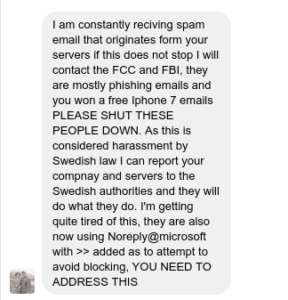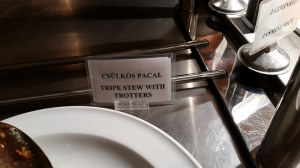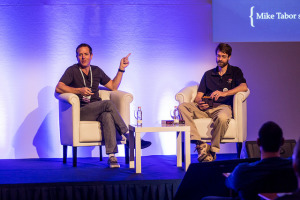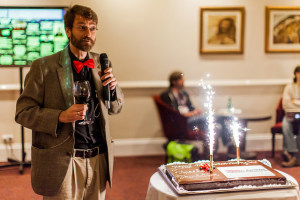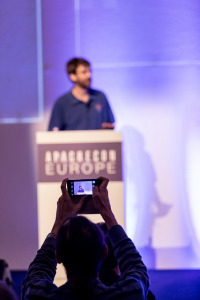I’ve been mentoring some folks at work who want to become committers in various ASF communities, and wrote the following as part of trying to document that advice.
Note that I’ll likely update this article periodically to reflect edits on my internal version of this doc. Your feedback would be very helpful in that process, as I try to help my colleagues be better upstream citizens.
Disclaimer
Nothing in this post should be construed as a guarantee. You can do everything listed here, for years, and still not become a committer. This is because the decision is made by individuals on the project PMC, who do things for their own reasons.
On the contrary, this document discusses how things should work, and sometimes do work, in some Apache Software Foundation (ASF) projects, but might not on the one you’re interested in.
Beneath each of these recommendations is the assumption that you are acting in good faith, for the benefit of the project. Simply attempting to check these boxes to game the system will reflect badly on you, and probably on your employer, too.
Becoming a Committer
It’s important to remember that becoming a committer is not a reward, or a recognition, so much as that it is the project expressing self-interest. That is, people are added as a committer to a project because it benefits the project, not because it’s some kind of pat on the back for the individual in question. As such, every behavior suggested here is about advancing the interests of the project. It is critical that you think, first and foremost, about being a project owner, and working towards the benefit of the project and its users.
These, therefore, are the behaviors that you should exhibit if you want to become a committer, and then a PMC member, on an ASF project. (These are not unique to ASF projects, of course, but process will differ greatly from one project to another, and are largely similar among ASF projects.)
Read the mailing list
ASF projects communicate on the mailing list. If you want to be involved in the community, you must set aside time every week (preferably every day) to keep current on the community discussion.
When first participating in an ASF project, you can (and should) look back several months (or as far as you have time for) to see what has been discussed recently. You can do this at http://lists.apache.org/
A growing number of projects also have a presence on Slack, Discord, or somewhere else. Find where that is, and become a regular. A shrinking number of projects have a presence on Libera IRC – mostly the much older projects. This is where you’ll connect with the older members of the projects and learn more of the ancient project lore.
Contribute code (and other things)
If you want to become a committer, you should make significant contributions to the project. The most obvious thing to contribute to a software project is code. Code contributions should be diverse in terms of size and significance. That is, you should work on small issues and large. You should collaborate with others on features and fixes, and you should propose significant changes yourself. You should dig up old tickets, and work towards resolving them.
In particular, you should work on code that is of benefit to all users, rather than focusing solely on features that benefit only yourself, or your employer. As a project owner, you should care about the entire health and sustainability of the project.
Code contributions are not the only type of contribution that counts towards becoming a committer, it’s just the most common. Design, documentation, marketing, event management, and many other ways of contributing to the success of a project are also often considered in making someone a committer. While the term “committer” implies committing code, it can also be interpreted as someone who is committed to the project.
End user support
Answering end user questions has many benefits. It’s the best way to establish expertise in aspects of the software that effect actual users, and, thus, the best way to stay in touch with user concerns. It’s also the way to establish and maintain visibility in the project community, because your name is always visible on the mailing list.
Caution: Do not just jump in and answer every question with visibility as a primary goal. Ensure that your answers are actually useful, and contribute something to the conversation. Simply posting to every conversation, particularly when someone else has already offered a good answer, can be perceived as attempting to game the metrics.
Documentation
Improving the documentation is one of the most effective things that one can do to improve the user experience. If you notice many people asking similar questions, this is usually an indication that the documentation is weak on that point. Fix it. When the question is asked again, point to the improved documentation, and ask for feedback as to how it could be further improved.
Take criticism of the documentation as a challenge, rather than a personal criticism.
Review PRs and tickets
Dig into unmerged PRs and outstanding tickets. Figure out how to navigate the process to get an old ticket resolved, or a PR merged.
This is an investment in the project in two ways.
The obvious improvement is getting an issue fixed or a PR merges, thus enhancing the project. The less obvious way is that ancient tickets, and unmerged PRs, communicate that the project is not actively maintained, and that user issues are being ignored. This undermines project trust. Thus, addressing these things builds community trust, and increases your personal value to the project.
Be visible
Participate meaningfully in discussions on the developer mailing list. Drive discussions through to action. Advocate for changes that help yourself and your employer, but also for those that improve the project as a whole.
Get to know the important characters on the project, and what their priorities are. Help them achieve those priorities in whatever way you can. Figure out who you can best collaborate with to advance your own personal interests in the project, but also the overall health of the project and community.
Start conversations around topics you’re passionate about, and volunteer to be the one to address them.
Do not, however, just talk to be seen. Nobody is fooled by that.
Vote on releases (non-binding)
Vote on release candidates and releases (non-binding).
Note that a vote should always mean that you’ve actually tested, so testing releases is implied here, too. Indicate what platform(s) you’ve tested on, and what was the nature of the tests that you performed. Testing releases on a variety of platforms and configurations is a very valuable piece of information for projects with limited testing infrastructure.
While these votes don’t “count” towards making a release official, it’s both hugely beneficial for the project, and increases your visibility.
Give talks
Propose talks to conferences about the project, and about how your employer’s customers are using it.
Proposing “Introduction to Apache Woobly” talks has many benefits. It is a great way to get the word out about the project. It’s good for establishing yourself as an expert in the field. It educates users (and potential customers) about operating the software. And it will help you identify what’s actually important about the software, how people use it, and what kinds of questions real users are asking about the software.
ApacheCon is the obvious place to give these talks, but also look for conferences about the general technology space around the project you’re contributing to.
Once you’re a committer …
If and when you achieve your goal of becoming a committer, don’t consider your journey done.
Becoming a PMC member is a continuation of the same path. Continue to do all of the above things, focusing more on the health of the project as a whole, rather than just your personal interests, or those of your employer or manager.
Also, take an active interest in other contributors – both those on your team, and those with other employers. Mentor them in following the same path that you followed. Encourage them. Celebrate them, and mention them to other contributors. This is an investment in the future of the project, so that, some day, when you move on to something else, the project will live on.
Interest across multiple projects, and at the Foundation-wide level, is the start of the path to becoming a Foundation Member, if that is something that interests you.
Summary
Finally, a reminder – there’s no way to guarantee promotion to committer or the PMC. However, if you make your goal the improvement of the project, rather than just about personal promotion, and approach these recommendations as a path to project ownership, in good faith, these are your best path towards that goal.
Resources
Find your project’s committer and PMC membership lists at https://projects.apache.org/
Read mailing list archives at https://lists.apache.org/
Find your contribution count to date on Github, for example: https://github.com/apache/hadoop/graphs/contributors (You can drag a date range to narrow it down to recent contributions.)
View past board reports from your project at https://www.apache.org/foundation/board/calendar.html This is a good way to judge the rate at which a given project adds committers and PMC members. It’s also a way to compare how long other individuals took to attain committer status.

